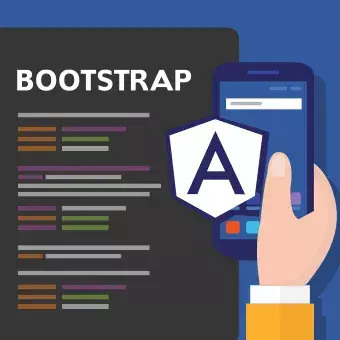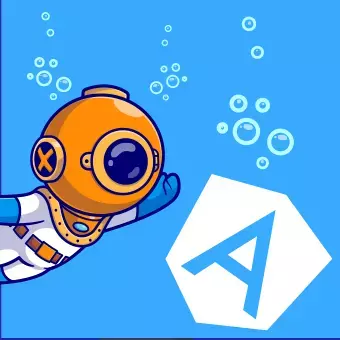Introduction
This guide aims to help you cut through the noise and make an informed decision. Whether you’re a startup or a well-established firm, selecting the right web agency is an important first step. From understanding your needs to analysing a prospective agency’s portfolio, from the significance of clear communication to the availability of post-project support—by the end of this article, you’ll be well-equipped to make that decision.
What this guide doesn’t aim to do is pitch our agency in any way. The truth is that not every agency is the right match for every client, and that’s perfectly alright. Our experiences, both rosy and rocky, have taught us that compatibility, above all else, is crucial. Hence, our aim here isn’t to sell our services, but rather to lay out the factors every business owner should consider when making their choice.
Looking for a Web Agency?
Understanding Your Needs
Before you think about reviewing or reaching out to web agencies, take a step back and evaluate your own needs. It sounds trivial, but it’s surprising how many businesses initiate a partnership (and a web project) without a clear idea of what they want to achieve.
Here’s why understanding your requirements is so important:
Setting Clear Objectives
Having clear objectives is the foundation of any successful project.
Before engaging with a web agency, it’s important to pinpoint exactly what you want to achieve. Are you looking to build a new website from scratch? Maybe you want to integrate new features or streamline the user experience on an existing platform.
Being clear about your needs from the outset helps in several ways:
- Efficiency: It reduces back-and-forth, streamlines the development process, and ensures timely deliveries.
- Accuracy: When an agency knows precisely what you’re aiming for, there’s a higher likelihood they’ll hit the mark.
- Cost: Having a clear scope prevents unforeseen costs (read about TCO in this post) and keeps the project within the stipulated budget.
Aligning Business Goals
Your website (or app) is a tool to achieve specific business goals. It could be increasing sales, boosting engagement, or enhancing brand awareness .. or all of these and more! You need to understand these goals so you can communicate them to your potential web agency so that they can tailor their strategy to these objectives.
Here’s how to go about this:
- Identifying Purpose: Before any design or development starts, pinpoint what you want the website to achieve. Is its primary role to generate leads, provide information, sell products, or something else?
- Measuring Success: Decide on the metrics that will indicate whether the website is fulfilling its purpose. This could be in terms of sales conversions, user engagement, page views, or any other relevant metric.
- Continuous Feedback: As the project progresses, continuously align its direction with your goals. Regularly check in with the agency to ensure they understand and are focused on achieving those objectives.
Remember, it’s okay to not have all the answers right away. But having a clear direction, even if it’s just a broad one, can make the journey smoother and the destination clearer.
Experience and Portfolio
In the world of web development, experience really does count. While newly-formed agencies can bring innovative ideas to the table, a seasoned agency has something invaluable: a proven track record.
Here’s why this matters:
A Rich Portfolio
Any reputable agency will have a portfolio showcasing their previous projects. This is your window into their capabilities, design sensibilities, and technical expertise. By examining past works, you can gauge if their style aligns with your vision.
Additionally, it’s an opportunity to check their versatility—do they only excel in one type of website, or do they have a broad range of successful projects under their belt?
Learning from Past Mistakes
Every project comes with its unique challenges. An experienced agency has likely encountered, and more importantly, overcome a variety of hurdles. This means they’re better equipped to handle unexpected issues, making the development process smoother.
Client Feedback
Alongside their portfolio, look for testimonials or case studies. Previous clients’ feedback can offer insights into the agency’s work ethics, communication style, and reliability. Remember, it’s not just about creating a great website, but also the journey to get there.
In essence, while it’s tempting to get swayed by a flashy pitch, delve a bit deeper. An agency’s past projects and client relationships can tell you a lot more about what to expect than any sales presentation.
Communication is Key
A successful web project hinges not just on technical knowledge but also on the strength of the client-agency relationship. Communication is key, and here’s why:
Clarity from the Get-go
From the onset, there should be open lines of communication between you and the agency. This involves discussing expectations, deliverables, timelines, and budgets. The clearer both parties are at the start, the fewer chances there are for misunderstandings down the line.
Regular Updates
A proactive agency will ensure you’re updated regularly on the project’s progress, any challenges faced, and potential solutions. This not only builds trust but allows for timely feedback and course corrections.
Openness to Feedback
The web development process is often iterative. As the client, you should feel comfortable providing feedback, and the agency should be receptive, agile, and adaptive. It’s a collaboration, after all.
Culture and Compatibility
The synergy between your company and the web agency will play a significant role in the project’s success.
Here’s what to consider:
Shared Values
Finding an agency that shares similar values and work ethics as your company will make the collaboration much smoother. Whether it’s a commitment to sustainability, innovation, or user-centric design, aligning values can translate into a more harmonious working relationship.
Flexibility
Every project will have its ups and downs. Working with an agency that’s flexible, understanding, and willing to adapt can make navigating challenges much more manageable.
Transparency
You want to collaborate with a team that’s upfront about costs, potential hurdles, and timelines. Honesty fosters trust and sets the foundation for a successful long-term partnership.
In essence, while technical proficiency is crucial, never underestimate the power of cultural fit and personal compatibility. It can be the defining factor in a project’s success.
Cost and Value
Once you’ve received quotes from various agencies, it’s tempting to go with the cheapest option, but as with most things in life, with web development too – you tend to get what you pay for.
Here’s how to strike a balance:
Understanding the Quote
It’s not just about the bottom line figure. Dive into the details of the quote. What’s included? Are any post-launch services included? Are there potential add-on costs not immediately evident? By dissecting the proposal, you can gain a clear understanding of where your money’s going.
Long-Term Investment
Your website isn’t just a one-time cost; it’s an investment in your company’s digital future. Rather than just considering the initial outlay, think about the long-term value the site will bring in terms of user engagement, conversion rates, and visibility.
Comparing Apples to Apples
When obtaining quotes from various agencies, ensure you’re comparing like-for-like. One agency might be offering a more comprehensive package, while another might be providing a basic service with several optional add-ons.
Transparency is Key
Be wary of hidden costs. A trustworthy agency will be upfront about all potential charges, allowing you to budget accurately and avoid unpleasant surprises down the line.
In conclusion, while cost is undeniably a vital factor, it’s essential to weigh it against the value and potential ROI a high-quality website can bring to your business.
Post-Project Support
Launching your website or app is just the beginning. The real test lies in how it performs in the real world, can be adapted to changing needs, and remains relevant as the digital landscape evolves.
Here’s why post-project support is indispensable:
Ongoing Maintenance
Like any tool or machine, websites need regular upkeep. This includes software updates, security patches, and performance checks. An agency’s willingness to provide this sort of support ensures your site remains in top form.
Quick Fixes
Despite rigorous testing, unforeseen issues can emerge post-launch. Reliable post-project support means these can be addressed promptly, minimising disruptions and maintaining user trust.
Training and Handover
It’s empowering when you or your in-house team can make minor updates without always relying on the agency. Ensure your chosen agency provides adequate training on the platform or CMS they’ve used.
Adaptability
Your business won’t remain static, and neither should your website. As you grow, pivot, or diversify, your site should mirror these changes and your agency should be willing and able to support this evolution.
To sum it up, the relationship with your web agency shouldn’t conclude with the site going live. Their support in the subsequent phases not only offers peace of mind but also ensures your website’s sustained success.
Conclusion
Over the past 20 years, we’ve experienced both the highs of successful collaborations and the lows of mismatched partnerships and communication breakdowns. The advice here isn’t theoretical; it’s taken directly from (the many!) real-world mistakes we ourselves have made and the lessons we’ve learned from those mistakes.
Choosing the right web agency is a project-before-the-project – and one that requires thought, research, and trust. As you embark on this adventure, we genuinely wish you all the success in finding an agency that resonates with your vision and goals. Good luck with your search, and here’s to the success of the project you’re planning!



